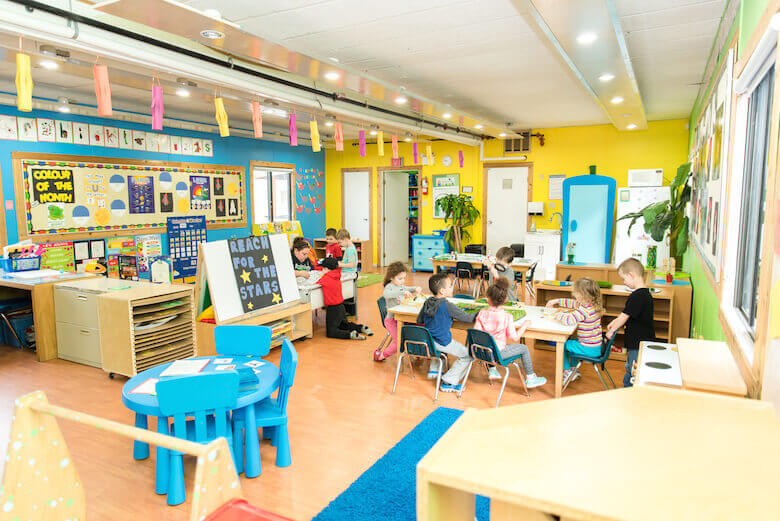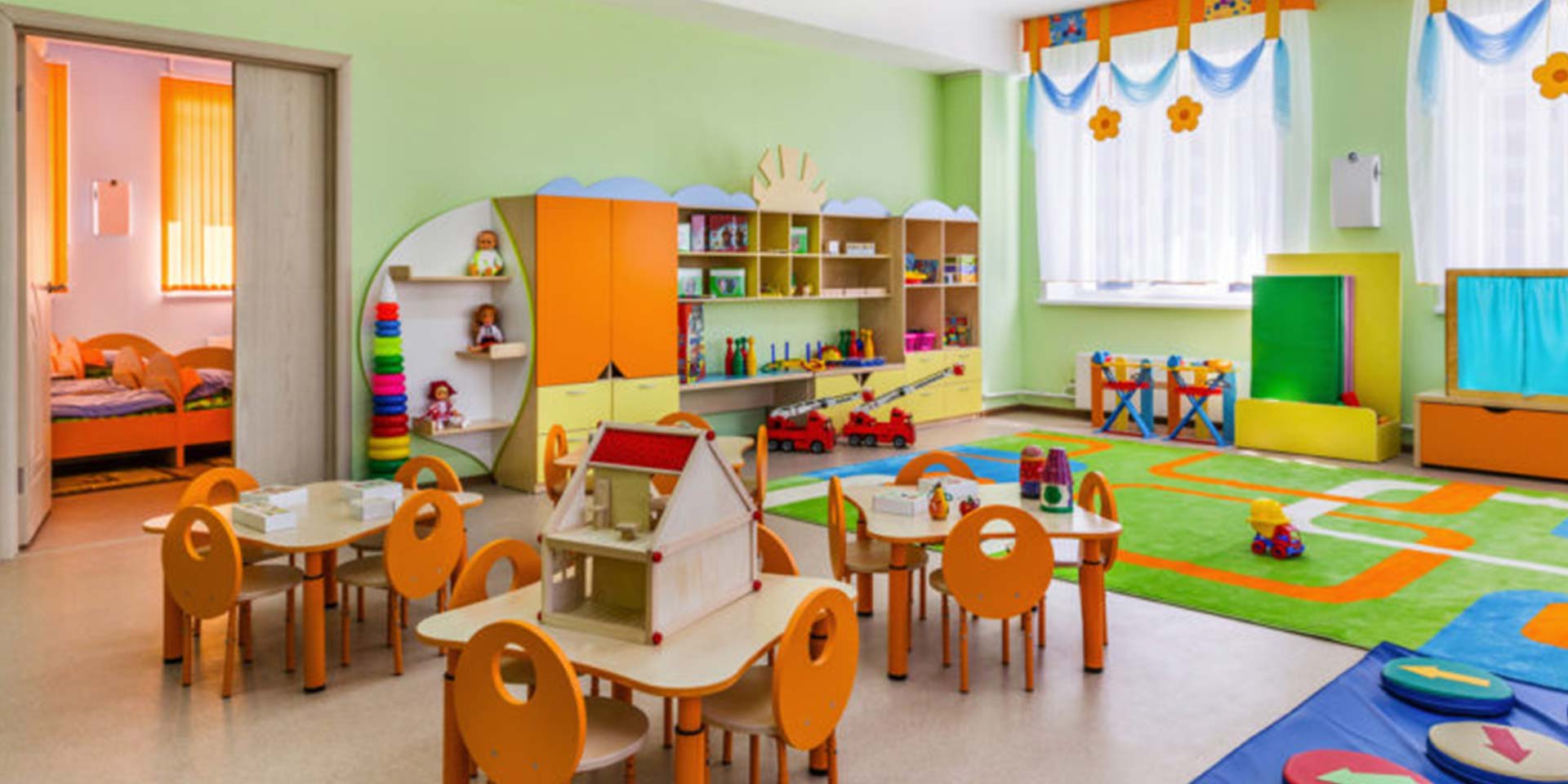What To Expect From A Top-Rated Daycare North York Environment
Wiki Article
The Role of Day Care in Fostering Social Abilities and Early Discovering
Daycare acts as a substantial atmosphere for little ones, helping with essential social interactions that promote very early knowing. In this organized setting, kids involve with caretakers and peers, developing important interaction and cooperation skills. As they browse play and various activities, they learn to deal with problems and construct psychological knowledge. Understanding the nuances of these interactions reveals the profound effect day care carries a kid's growth, forming their future partnerships and scholastic preparedness. What specific skills do children acquire in this setting?The Importance of Social Interaction in Day Care
While numerous parents acknowledge the relevance of early youth education and learning, the duty of social communication in daycare is usually undervalued. Childcare setups provide children with indispensable possibilities to involve with peers, fostering important social skills. During these formative years, kids discover to navigate different social dynamics, such as sharing, participation, and conflict resolution. Engaging with diverse age groups and individualities improves their capability to adapt to various settings and create empathy towards others.
Structure Communication Abilities With Play
Play acts as a powerful tool for kids to develop crucial interaction skills in day care setups. Via various play activities, children involve in conversations, express their thoughts, and find out to pay attention to others. Parlor games, for instance, motivate them to make use of language in various contexts, promoting vocabulary growth and understanding of social signs.
In addition, storytelling throughout play permits kids to share concepts and emotions, aiding them develop narrative abilities and self-confidence in their spoken expressions. Overall, play not only acts as a delightful pastime but likewise as an important system for creating the communication skills needed for successful social interactions in later life.
Encouraging Teamwork and Synergy
Collaboration and team effort are essential skills that kids can cultivate in daycare environments. Through different group activities, such as developing jobs or collective games, youngsters discover to share duties and work toward common objectives. These communications cultivate an understanding of the significance of paying attention to others, working out functions, and jeopardizing when required.In day care setups, caretakers usually develop opportunities for youngsters to participate in synergy by urging them to join group tasks. This not only aids kids create social bonds yet likewise grows a feeling of belonging and neighborhood.
As they navigate these cooperative experiences, youngsters gain valuable insights right into the dynamics of functioning with peers. They find out to appreciate diverse perspectives and pop over to this web-site recognize that each member adds distinctively to the group initiative. Inevitably, these early lessons in collaboration and teamwork prepared for healthier relationships and reliable partnership in future social and scholastic setups.
Structured Knowing Activities and Cognitive Development
Structured discovering activities play an important role in fostering cognitive growth in little ones (Childcare North York). These activities, which consist of problems, narration, and hands-on experiments, stimulate critical reasoning and analytical abilities. In a day care setting, organized learning motivates kids to involve with their peers, improving their capacity to process info and recognize numerous concepts
With assisted play and interactive jobs, youngsters develop foundational skills such as numeracy and literacy. Tasks focused around numbers can aid children grasp mathematical ideas, while storytelling improves language procurement and understanding. Additionally, structured knowing permits instructors to analyze developmental development and dressmaker activities to private discovering requirements.

Including a varied variety of structured activities not just advertises cognitive development however also prepares children for future academic success. By offering a balanced setting that promotes exploration and inquiry, childcare programs play a crucial function in shaping the cognitive abilities of young students.
Promoting Emotional Knowledge and Confidence
Emotional knowledge and confidence are important parts of a youngster's advancement, complementing the cognitive skills cultivated via structured knowing tasks. In day care settings, kids are offered with opportunities to reveal their feelings and take part in social communications, which are important for developing psychological understanding. Through assisted play and group tasks, children discover to identify their sensations, recognize those of others, and establish compassion.Additionally, interaction with peers and caretakers assists to grow self-esteem and strength. Favorable reinforcement and inspiration from adults encourage children to take dangers and face obstacles, fostering a feeling of accomplishment. As they navigate social characteristics, children develop self-confidence in their abilities to interact, team up, and deal with problems - Child Care Near Me. This nurturing atmosphere permits for the gradual advancement of psychological knowledge, which is essential for future interpersonal connections and total health. As a result, daycare plays a considerable duty in cultivating both emotional intelligence and confidence in children
Regularly Asked Concerns
Exactly How Can Moms And Dads Pick the Right Daycare for Their Child?
Parents ought to take into consideration elements such as location, personnel credentials, safety requirements, curriculum, and evaluates click site from other parents when choosing the best day care for their kid, ensuring it aligns with their child's developmental needs and family worths.
What Age Is Ideal for Beginning Childcare?

Just How Does Day care Influence Children's Habits in the house?
Daycare usually positively affects children's habits in the house by improving social abilities, promoting freedom, and encouraging psychological policy (Child Care Center). Consequently, kids might exhibit enhanced interaction and participation, resulting in even more unified family members dynamicsExist Any Downsides to Day Care Presence?
Yes, there are downsides to day care presence, including potential separation stress and anxiety, direct exposure to diseases, and inconsistent caregiving. These variables can influence a youngster's psychological well-being and adjustment in the house, impacting general family dynamics.Just How Can Moms And Dads Assistance Social Skills Learned at Daycare?
Moms and dads can support social abilities learned at childcare by assisting in playdates, encouraging cooperative tasks, modeling favorable communications, talking about feelings, and strengthening sharing and communication at home, thus boosting their youngster's social development and confidence.Day care serves as a considerable setting for young youngsters, assisting in vital social interactions that promote very early knowing. Day care settings offer children with very useful opportunities to engage with peers, fostering vital social check out here abilities. Play serves as an effective tool for youngsters to construct vital communication abilities in day care setups. In daycare settings, kids are offered with possibilities to reveal their emotions and engage in social communications, which are vital for developing psychological recognition. Daycare typically favorably influences children's actions at home by improving social abilities, promoting freedom, and encouraging emotional law.
Report this wiki page